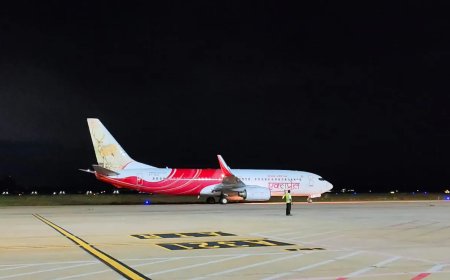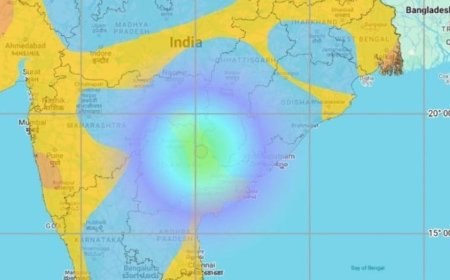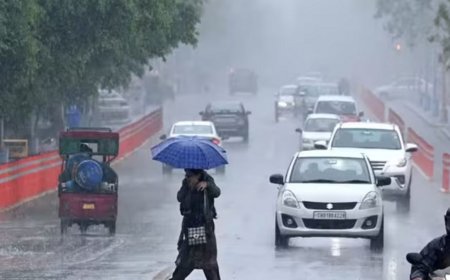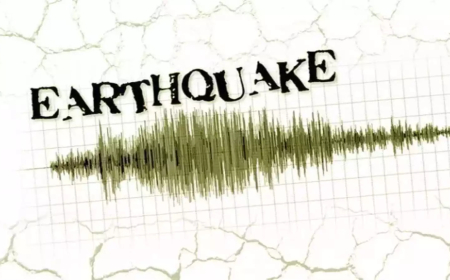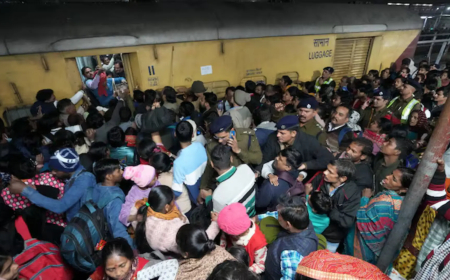Morning News Highlights: NSCN-IM Hints at Armed Response Post-2015 Pact; PM Modi Declares Article 370 Irreversible, and More Key Updates
In today’s top headlines, the NSCN-IM suggests potential armed action since the 2015 peace deal, and PM Modi confirms Article 370's revocation is here to stay. Get the latest insights and more important updates.
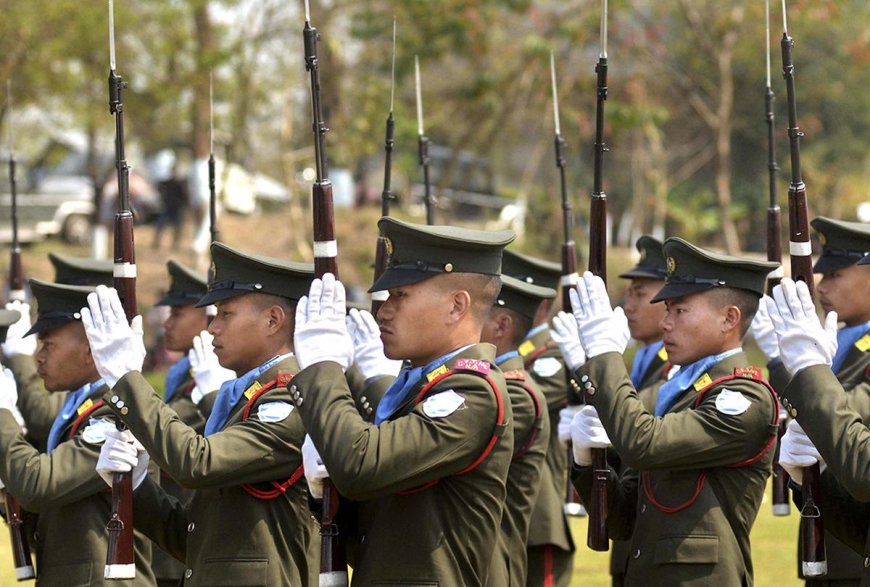
Morning News Highlights: NSCN-IM Signals Armed Resistance, Article 370 is Permanent – Top Stories You Need to Know
This morning’s headlines bring crucial national updates, from the NSCN-IM hinting at the possibility of armed action for the first time since its 2015 agreement with the government, to Prime Minister Modi’s firm declaration that Article 370 cannot be reinstated. Here’s a complete rundown of today’s significant news updates.
1. NSCN-IM Warns of Armed Response Following 2015 Peace Agreement
- Background: The National Socialist Council of Nagaland (NSCN-IM) had agreed to a peace accord with the Indian government in 2015, promoting peaceful negotiations over armed conflict.
- Current Stance: For the first time since the accord, the NSCN-IM has hinted at the potential return of armed resistance if their demands are not met.
- Implications: This marks a significant shift in the peace process, as the group expresses frustration with the slow progress in achieving their goals.
- Potential Outcomes: Renewed tensions could lead to instability in the region, impacting efforts for lasting peace in Nagaland.
2. Prime Minister Modi Asserts Article 370 Will Not Be Reinstated
- Firm Stand: PM Modi reiterated his position on Article 370, emphasizing that its revocation is irreversible.
- Background: Article 370, which granted special status to Jammu and Kashmir, was removed in 2019, sparking widespread debate and political discourse.
- PM’s Statement: According to Modi, no government will be able to reinstate Article 370, aiming to bring equal development across all regions.
- Impact: This statement has reaffirmed the government's commitment to integrating Jammu and Kashmir fully into India, affecting regional politics and public sentiment.
3. Regional Leaders Respond to Article 370 Statements
- Reactions: Local leaders in Jammu and Kashmir, as well as national political parties, have voiced their opinions on Modi’s declaration.
- Diverse Perspectives: While some leaders support the move for unity, others argue that Article 370’s removal overlooked regional rights.
- Broader Political Climate: The continued debate reflects the deep divisions over Article 370, highlighting its lasting impact on Indian politics.
4. NSCN-IM and Government Peace Negotiations at a Critical Point
- Stalled Progress: The peace talks between the NSCN-IM and the government have seen little advancement in recent years.
- Core Demands: NSCN-IM’s demands include autonomy and special provisions for Nagaland, which remain unresolved.
- Risk of Escalation: With the recent armed threat, there is a renewed urgency for the government to address the group’s concerns to prevent conflict.
- Possible Diplomatic Solutions: Experts suggest that mediation or a third-party negotiation might help bridge the gap and renew trust in the peace process.
5. India’s Internal Security Dynamics Face New Challenges
- Security Concerns: The NSCN-IM’s hint at resuming arms could potentially affect security across the northeastern states.
- Government Response: Security forces are likely to be on high alert as the situation unfolds, with a focus on maintaining peace.
- Broader Implications: Any increase in armed conflict may impact local communities, infrastructure, and the overall progress in the region’s development.
6. Political Climate in Jammu & Kashmir Post-Article 370 Revocation
- Development Efforts: The central government has introduced multiple initiatives aimed at boosting economic growth in Jammu & Kashmir since Article 370 was lifted.
- Public Sentiment: While some support the development efforts, others feel that local voices are not sufficiently included in decision-making.
- Future Challenges: Balancing economic growth with the need for inclusive governance remains a core challenge in the region.
7. Impact on India’s National Unity and Cohesion
- Unity Emphasis: The government maintains that moves like the revocation of Article 370 foster national unity and remove barriers between states.
- Regional Identity: Critics argue that maintaining local identity within a unified India is essential for social harmony.
- Long-Term Vision: The government’s policies reflect a long-term vision of equal development across all regions, though challenges persist in execution and acceptance.
8. Potential Diplomatic Impacts and International Reactions
- Global Observers: International bodies and foreign governments monitor developments related to Article 370 and India’s internal security.
- Human Rights Concerns: Some international groups have raised concerns about human rights and local autonomy in light of recent changes.
- India’s Position: The Indian government has consistently defended its actions as necessary for peace and development, asserting that Jammu & Kashmir is an integral part of India.
9. Analysts’ Perspectives on NSCN-IM’s Warning and Article 370’s Revocation
- Security Analysts: Experts view NSCN-IM’s statement as a reminder of the delicate balance in peace processes, emphasizing the need for sustained dialogue.
- Political Analysts: The debate over Article 370 is seen as a significant political milestone, with implications for Indian federalism and regional governance.
- Future Outlook: Analysts predict that resolving these issues will require both strong governance and sensitivity to regional identities.
10. Outlook for Peace and Stability in Nagaland and Jammu & Kashmir
- Nagaland’s Path Forward: Renewed peace talks could be crucial in avoiding armed conflict and finding common ground with NSCN-IM.
- Jammu & Kashmir’s Future: Economic development and inclusivity in governance are viewed as key to long-term stability.
- National Security: Maintaining peace in both regions is critical for India’s overall security and internal unity.
Conclusion
Today’s headlines highlight pivotal developments, from the NSCN-IM’s warning of potential armed response to PM Modi’s firm stance on Article 370’s revocation. These stories underline the ongoing challenges in maintaining peace and unity across India’s diverse regions. With crucial decisions ahead, the focus remains on finding balanced approaches that uphold national interests while respecting regional identities.
What's Your Reaction?



















